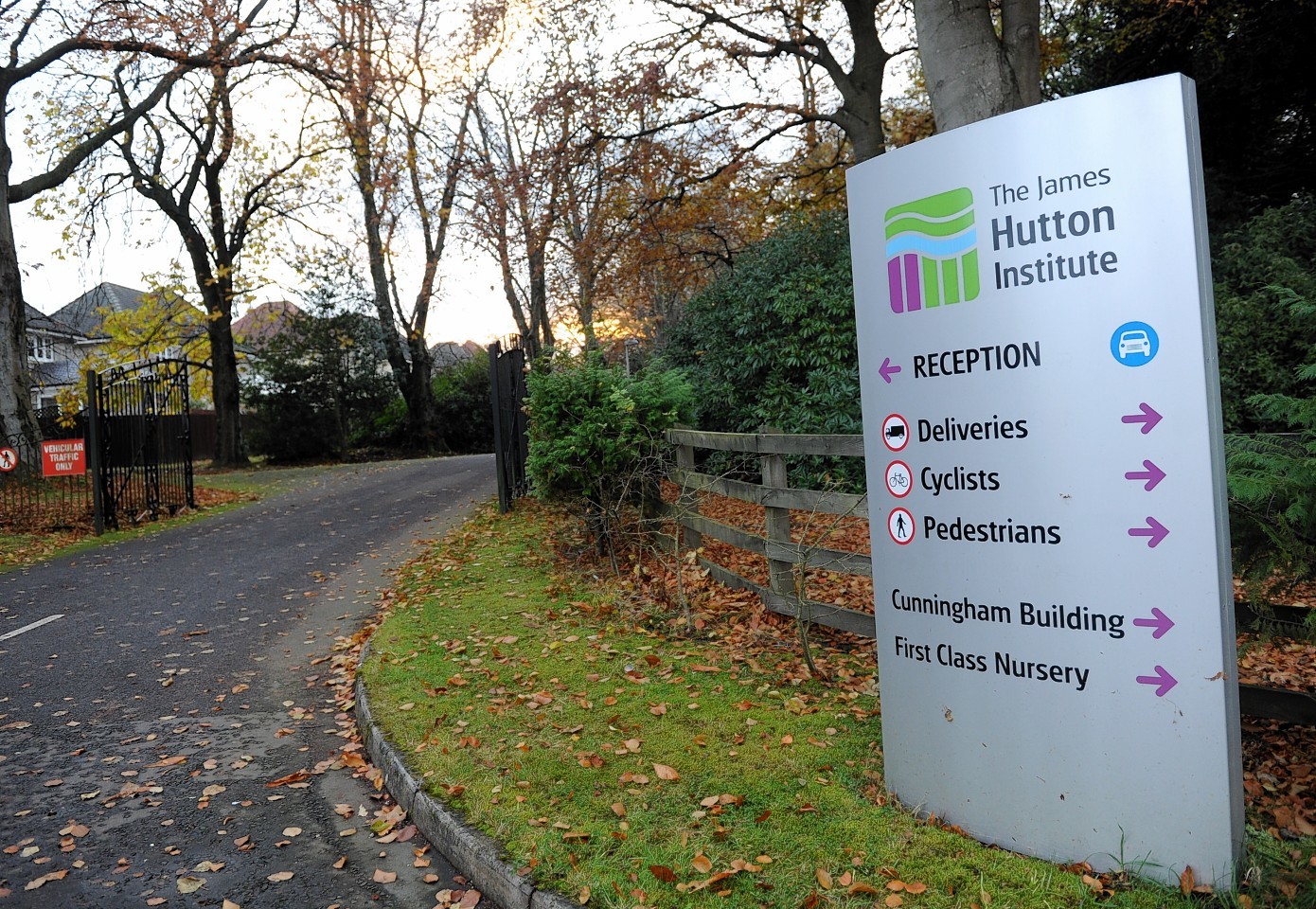The James Hutton Institute is preparing to lay down “significant investment” to build a new international land use planning centre, despite shedding 70 jobs in a bid to reduce costs and alleviate budgetary pressures.
The news comes as the institute workforce – split between Invergowrie and Aberdeen – faces continued uncertainty over future employment at the research centre, as the subject of a widespread voluntary redundancy scheme.
The world-renowned farming and environmental research centre has lost £2.5million of government funding over the last three years – and currently faces a £1.8million deficit.
But this week, a spokesman for the JHI confirmed it is currently in “exciting scoping discussions” with the Macaulay Development Trust to further develop JHI facilities.
It is understood the trust wants to invest in a potential multi-million pound development at Craigiebuckler, on the Aberdeen site of the JHI, which will see the build of a new international integrated land use planning centre.
“This centre will support the Institute’s science excellence in this area and ensure we stay at the forefront of land use research in Scotland and internationally,” said a spokesman for the JHI.
He said the Institute is also currently seeking funding from the Scottish Government to create an “internationally renowned crop science innovation hub” at its Invergowrie base, outside Dundee.
“This will enable the Institute to work closely with industry and scientists from around the world to strengthen Scotland, and Dundee’s, position as a world-leading centre of plant and soil science excellence,” he said.
“Both of these prospective developments demonstrate our commitment to investing in the future of our science excellence at the James Hutton Institute and our ambition to keep Scotland at the forefront of world science excellence.”
Pressed whether the JHI had managed to achieve its goal of 70 voluntary scientific and administrative redundancies from its workforce of 600 people, the spokesman said the JHI will make “no comment” whilst the process is still is underway.
“This affects individuals and we feel it wouldn’t be appropriate,” he explained.
It is unknown whether, or when, this voluntary scheme might become compulsory in terms of redundancies.
The loss of jobs, however, at the institute has already led Scotland’s growers to voice deep concern at the impact cuts may have on the nation’s invaluable research and development effort.
Work at the JHI includes plant breeding and research into the genetic make-up of crops such as potatoes and barley.
NFU Scotland’s combinable crops chairman Andrew Moir said: “There is a well-documented correlation between research being scaled back and agricultural production tailing off.
“The dramatic fall in R&D expenditure across Europe since the 1980’s will have contributed to the yield plateau that growers are now experiencing.
“Growers want to see the skills, knowledge and expertise at JHI retained and strengthened to the benefit of our own agricultural industry and beyond.”
Chairman of the union’s soft fruit and field vegetable working group, Peter Thomson, said such is the value of the research taking place at the JHI, that its “reach and impact” is worldwide.
“That is a real asset and something worth protecting,” he said.
